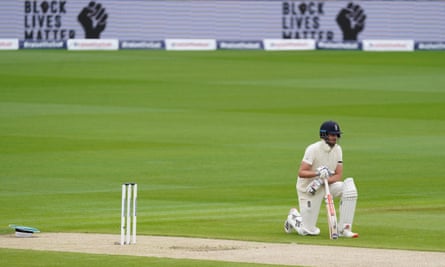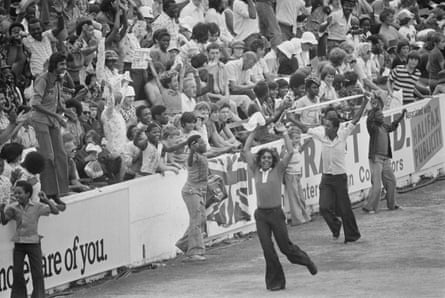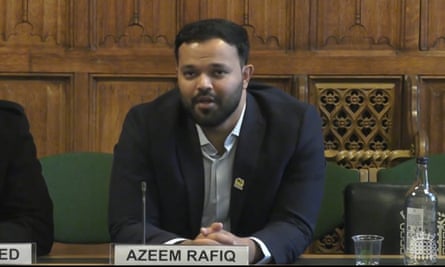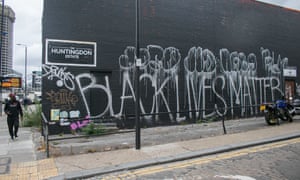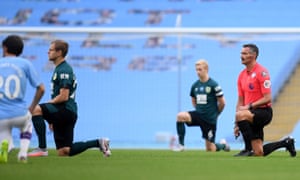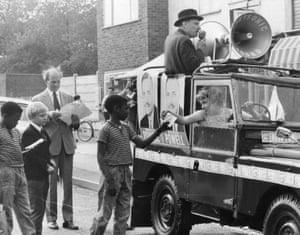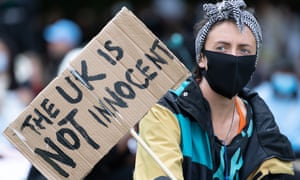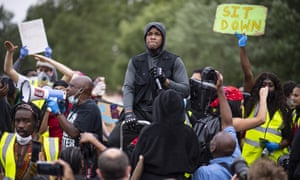The national conversation on racism seems to be stuck in an endless loop. We all know the routine: a public debate is sparked by a news story that features a case of alleged bigotry. It might be reports that an Asian cricketer was nicknamed “Bomber”; or that a member of the royal family is said to have questioned a baby’s skin colour. Whatever it is, the inciting incident then sets the parameters of all the discussion to follow. An array of loud and angry voices appears on media panel shows or radio phone-ins, suggesting what might or might not have occurred (no one knows for certain), and whether or not any of it is racist (everyone is certain that it either is, or it isn’t).
And so, instead of the nuances of racial inequality being understood, the issue is portrayed as a simple matter of people saying or doing bad things to each other, and we get a tiresome to and fro between those “playing the race card” and others “in denial”. Many of us just tune out, while the overall issue of racism in society – a real problem in need of an urgent solution – remains unaddressed.
That is why, six years ago, the Reframing Race initiative was set up. It is an attempt to fix this broken debate. We have spoken to 20,000 people in England and Scotland, testing more than a dozen ways of talking about racism. With our unprecedented bank of data, we now dare to answer the question: what actually works to change the conversation?
We discovered – plainly – that words make a difference. New ways of talking about racism lead to new ways of listening.
The first problem we found was that people don’t agree on what the basic facts mean. For instance, “black people are stopped and searched at seven times the rate of white people”: some will believe this indicates a racist bias in policing; others will simply say it’s a sign of criminality in the black population. It is therefore important to tell the full story, which is that the over-representation of black people in the criminal justice system does not imply they are more inclined to commit crime. Instead, the data reveals a complex social structure – involving prejudice in the justice system, poverty, school exclusion and insecure housing – that stacks the odds against black people.
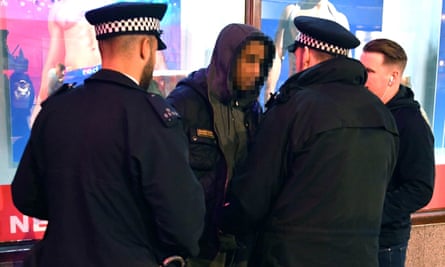
‘We found that people don’t agree on what the basic facts mean. For instance, ‘black people are stopped and searched at seven times the rate of white people’.’ Photograph: John Stillwell/PA
This explanation is not as eye-catching as the headline statistic, but we did find one particularly effective way to communicate the problem of racism: namely, a CV investigation that showed recruiters were biased in favour of white applicants. In telling the full story of this study, we were able to rule out any explanations other than race-based discrimination. Choosing to represent structural racism in this way allows a mainstream audience to see it for themselves, and leads the discussion away from the “Is it racist?” ping-pong game.
And where facts don’t work, sometimes metaphors do. We discovered that using the image of a birdcage to represent a racist system that traps some people inside was powerful. Everyone can understand the way in which each bar of a cage combines to deny freedom and opportunities. The birdcage metaphor also appeals to people’s values, rather than their logic. Unlike stop-and- search statistics, the concept of freedom is universally understood and agreed on.
Another thing we found is that showing some intention behind structural racism – even naming a “perpetrator”, such as a government department – leads to a more fluent discussion about how to address it. This approach is also more likely to inspire hope that things can be changed; if something was designed in a way that disadvantaged certain racial groups, it is reasonable to suppose we could redesign it.
This explanation is not as eye-catching as the headline statistic, but we did find one particularly effective way to communicate the problem of racism: namely, a CV investigation that showed recruiters were biased in favour of white applicants. In telling the full story of this study, we were able to rule out any explanations other than race-based discrimination. Choosing to represent structural racism in this way allows a mainstream audience to see it for themselves, and leads the discussion away from the “Is it racist?” ping-pong game.
And where facts don’t work, sometimes metaphors do. We discovered that using the image of a birdcage to represent a racist system that traps some people inside was powerful. Everyone can understand the way in which each bar of a cage combines to deny freedom and opportunities. The birdcage metaphor also appeals to people’s values, rather than their logic. Unlike stop-and- search statistics, the concept of freedom is universally understood and agreed on.
Another thing we found is that showing some intention behind structural racism – even naming a “perpetrator”, such as a government department – leads to a more fluent discussion about how to address it. This approach is also more likely to inspire hope that things can be changed; if something was designed in a way that disadvantaged certain racial groups, it is reasonable to suppose we could redesign it.
Surprisingly, our research also tells us that it is possible to be bold – even radical – in challenging racism, so long as your ideas are explained well enough. For instance, we found most people agreed with the idea of investing in mental health services so that police did not have to do the job of mental health professionals, and for teaching schoolchildren of all backgrounds their shared history. I doubt the phrases “defund the police” or “decolonise the curriculum” would have generated the same support.
Overall, we found it is not easy for people to feel confident about tackling racism when its finer details are constantly being argued over. But we do know we all have the potential to make a positive change. So if you find yourself trapped in an argument about what is or isn’t racist, consider how you could change that conversation. What could you say differently? None of us has the perfect answer, but we can all choose not to be part of the problem.
